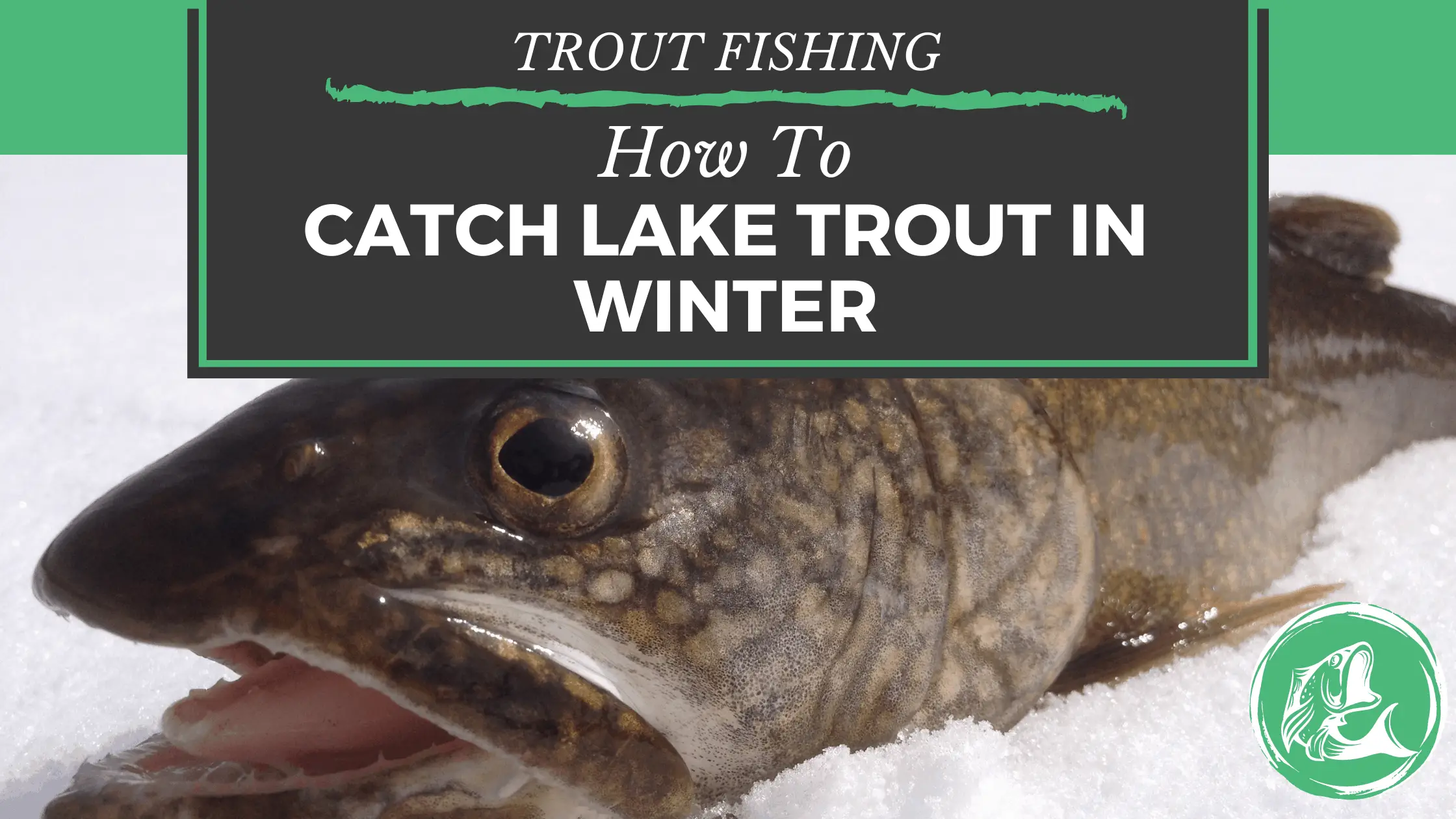Fishing is a popular sport anywhere, and trout is indeed a post-worth catch, especially in winter. This particular fish is commonly found in cold places like the Northern part of America and Canada. They live in freshwater, so you will likely see them in lakes, rivers, and creeks. Trouts are usually active all year round, so it’s a perfect fish for any fisherman.
Furthermore, this fish can grow quite large, and the biggest trout recorded weighed 72 pounds and 59 inches long. Catching them will include many techniques, from changing your bait to mealworms to shore fishing and trolling, which we discuss further in the article.
Moreover, catching a trout is very rewarding in different aspects. Although it’s not that hard to snag, it’s challenging enough to make your fishing worthwhile. As long as you know where to look at you can surely get your trout. You might even get the biggest one there is.
If you want to know how you can fish trout during winter, read on.
Lake Trout Behavior in Winter
For some fishermen who like to fish all year round, trout is an excellent fish to hunt. That’s because, unlike other fish, trout are active in cold water in wintertime. When the ice melt, they tend to be near the shore, so you can easily spot and catch them. Feel free to use artificial lures with trout since they can give you excellent results.
Just remember that since the water is cold, some trouts are not as active as they are in spring and fall. You will likely see them near the shore or at the bottom within 30 feet. Trout can also be found near their prey or certain areas like islands and points.
What Do Lake Trout Eat In Winter?
In winter, trout usually stay in shallow waters because they can’t stand the coldness on the bottom waters. Usually, you will find them near their food source, small fishes, bugs, etc.
Here are some of the food sources of trout:
1. Mealworms – this one is a favorite of trout as it’s soft and chewy for them. It is one of their natural foods, and you can use it to lure them up so you can catch them.
2. Minnows – as mentioned earlier, trout love small fishes, so they will attack and eat these small fishes when they see them.
3.Leeches – live in water and usually hibernate in winter. They are typically found near shore in vegetative and grassy areas.
4. Insect – trout like bugs like nymphs and other insects that usually stay in the water.
5. Crustaceans – Crustaceans like shrimp, crayfish, and scuds are some food trouts like to eat.
6. Earthworms and leeches – These are also one of the trouts’ favorite. Anglers use them as well as bait for different fishes like trouts.
Lake Trout Depth in Winter
Since the surfaces of deep waters are too cold for trout, they tend to linger near the shore. You usually see them hiding under boulders, neck-down channels, and shoals. They are most active near areas with small fish and insects in those places.
Mostly these places are 5 to 10 feet deep or more, but it still depends on the location where you are fishing. Sometimes they can circle the area searching for food, and they can go deeper than 15 feet.
Best Bait for lake trout in winter
To catch a trout, you need to have items that will help you get them, none other than bait. A bait will help you lure these fishes, and you can use live baits or artificial lures.
Here are some of the best lures you can use.
1. White tube jigs – this lure usually looks like a squid since it has tentacles floating in the water. Its body is long and hollow, and it can easily attract trout since it seems like an alive bait.
2. Spoons – are also great lures to use for trouts. It can reflect light in the water, which can help in attracting different fishes, especially trouts.
3. Bucktail jigs – this one looks like a white tube jigs, but it has a feather in its end. It also lures trout by looking like fish bait.
4. Lipless crankbaits – is also a great lure to use when fishing in winter for a trout.
5. Cheese – some fishermen also use Velveeta cheese in catching trouts. The smell can be delicious for these fishes.
6. Power bait – this one produces a fishy smell on the water that can attract trouts. This bait is manufactured, and you put it in the hook so trout can eat it.
How To Catch Lake Trout Trolling in Winter
Trolling trout is easy as long as you know the things you need to do. If you have boat trolling, this is one of the best ways to catch a trout. When you are trolling, it’s best to have more than one rod to the boat. However, keep in mind that having too much might get it all tangled up with each other.
Also, you should have another angler that will help you in checking and clearing the rod lines. An angler should handle two to four lines but not more than that. Half of the line should run in deeper depth while the rest is on shallow depth. This way you can cover all ground.
The speed while trolling should not be fast or too slow. Speeding up may not give your dodgers and lures enough motion to attract trout. Make the rod’s tips close to the water to go deeper and won’t get tangled.
Dodgers is also crucial since it helps attract the trout’s attention. The dodger has a side-to-side movement that flashes light in the water. It is also best to get a middle-size dodger with a white or chrome color in getting a trout. This way, you can attract trout and catch more of them.
For your lure, you can use almost anything that is mentioned above. You can also try to experiment to find out what kind of lure is the best bait for trout. Usually, trout loves chrome or reflective pieces like a spoon, but some can also opt for something colorful.
How To Catch Lake Trout From Shore in Winter
Since trout lacks food in winter, you will have a chance to catch them inshore. They are likely lingering in place with food that they can eat. You must find those places since you will have more opportunities to catch trout there. Search in places where you can find a school of fishes like in the rocks and boulders.
It is also essential that you check the water’s temperature to succeed in getting a trout. If the water is too cold, lace trout move slower and might not get your bait. With this, a place with steady or slower water is much better to fish as well. This way, they don’t need to fight with water currents, and they will likely move to catch your bait.
Also, use a sinker with your line to go down deeper immediately after you deploy it. Don’t forget to attach a good lure like a spoon to attract trout. You can also try different kinds of lures in colors of white, gold, or colors that sparkle under the water. Adding vibration is essential as well since it can mimic live baits.
Additionally, ensure to check the trout’s behavior in the place where you are fishing. Every fish has unique traits that you can use in catching them. Be familiar with the area you want to go fishing in as well. Get a map if necessary, so you know the best places to catch trouts.
In choosing a spot to fish, select a place that is not too crowded. It is to avoid driving away from the fishes and getting the line tangled with other people’s lines. Clearwater is also a good spot for fishing trout, so make sure to search for that.
In catching them, you need to make sure that your line hits the bottom of the water. Use a sinker if you want your line to reach the base immediately, especially if you’re on the shore. An attractor like dodgers is also good at attracting trout.
For the lure, both live and artificial bait works well with trouts. You just need to experiment to know which one they are likely to get.
Recap / Final thought
If you love fishing, then catching trout even in winter will be enjoyable to you. It is no wonder since this particular fish will surely make your time worthwhile. They are challenging enough and a great catch. You just need to know the tricks and strategy in catching your trout.
Be familiarized with their behaviors, especially their eating patterns. They usually stay at places where they can find food or quickly hide. You can easily find them in vegetative areas of boulders, rocks, and islands. They also like to swim in clear and steady and slower water since they don’t need energy.
Lastly, carefully read this article since it will help you catch trout in your next fishing adventure.


